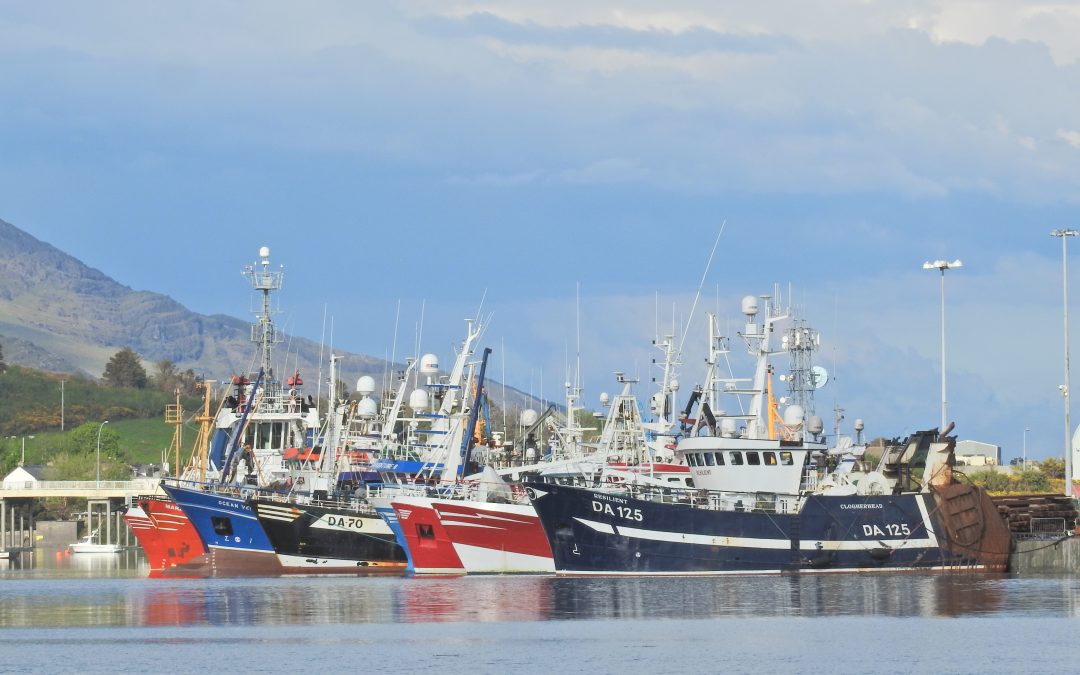Charlina Vitcheva, the new Director General of the DG for Maritime Affairs and Fisheries, was welcomed yesterday by representatives of the European fishing sector, Europêche and EAPO, the latter of which the Killybegs Fishermen’s Organisation (KFO), the Irish South and West Fish Producers’ Organisation (ISWFPO) and Irish Fish Producers’ Organisation (IFPO) are members.
The meeting allowed the fishers representatives to present and discuss the key topics with Ms Vitcheva. The new Director agreed with the fishing industry’s claim for better positioning fisheries in the EU Green Deal and in the Farm to Fork Strategy.
While supportive of the Green Deal goals as such, Europêche and EAPO, objected against setting unrealistic and very harmful objectives, such as fencing off 30% of EU seas as Marine Protected Areas (MPAs) or phasing-out bottom trawling, as set out in the EU’s recently launched Biodiversity Strategy.
Here, the industry representatives pointed to the recent positive FAO report that shows that about 80% of the fish consumed worldwide comes from sustainable stocks. In the EU, according to the Commission’s latest communication, more than 99% of the landings in the Baltic, North Sea and the Atlantic managed exclusively by the EU will come from sustainably managed fisheries in 2020.
The importance of seafood for a healthy, low carbon footprint diet was underlined and this meant that seafood should be promoted in the Farm to Fork strategy. During the meeting, EAPO and Europêche also reflected on the consequences of the COVID-19 crisis.
Europêche President Javier Garat emphasised that: “We continue fishing through the crisis to provide sustainable healthy food to the consumers, but the drop in demand and prices has not recovered and the upcoming economic crisis will affect markets and our sector for a considerable time to come”.
The mitigating measures taken by the Commission were welcomed by the industry who pleaded for a rapid unlocking of €500 min additional fisheries funds.
Other central topics discussed included the ongoing revision of the control regulation. In this respect, EAPO and Europêche underlined the need for a simpler regulation with less administrative burden.
Also the increased use of marine space by MPAs and windfarms led to the sector’s call for support from the Commission to guarantee continued fishing activities at sea, thereby ensuring food security and supporting coastal communities across Europe.
Europêche and EAPO asked the European Commission to make life easier for fishermen since they have to face far too many regulations and bureaucracy of such complexity that hampers daily fishing operations.
In this context, the fishing industry called on the Commission to be sensitive and as flexible as possible in the implementation of the newly adopted multi-annual plan for the western Mediterranean in a way that does not aggravate the socio-economic consequences caused by this pandemic.
Furthermore, both organizations have proposed DG Mare to eliminate the regime of the autonomous tariff quotas (ATQ) for tuna loins at zero-duty tariff because it has been demonstrated that there is enough raw material available that this ATQ distorts the tuna market.
In this sense, the sector also informed the new DG about the importance of guaranteeing the level playing field to ensure the competitiveness of the EU fleet.
On behalf of the industry, EAPO President, Pim Visser invited Ms Vitcheva: “To visit one of our ports and see all the aspects of the food supply insured by the fishing industry”. Follow-up meetings to exchange views will also be welcomed.
Photo Credit: Niall Duffy


Recent Comments